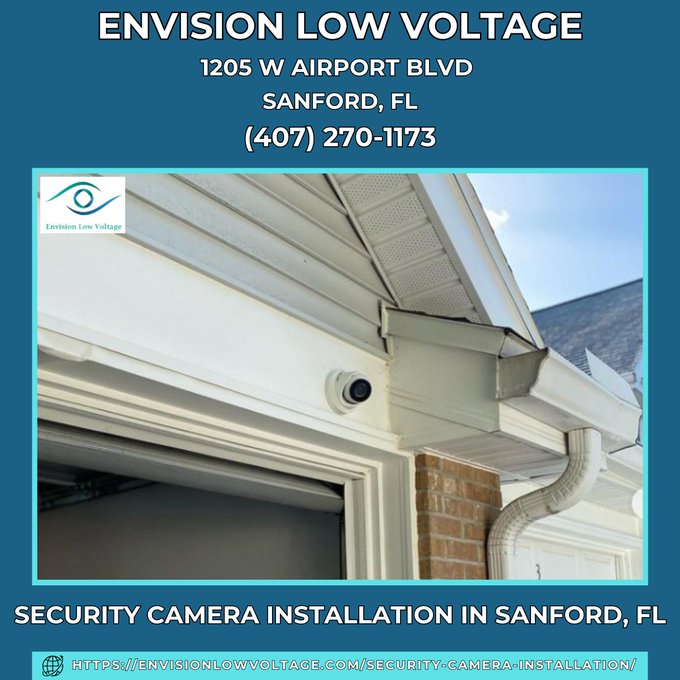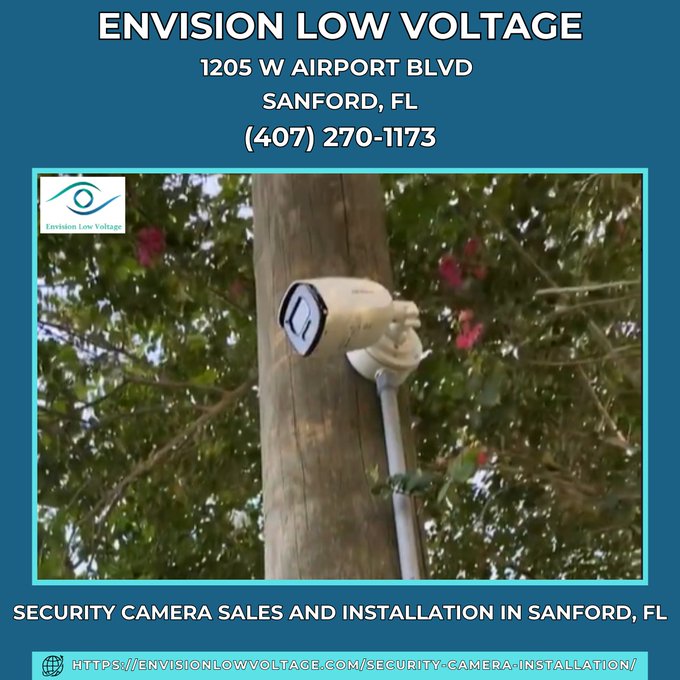Introduction
In today's world, home security has become a top priority for many homeowners. With the rise in crime rates and the increasing value of personal property, more people are opting to install security cameras around their homes. But with this added layer of protection comes questions about energy consumption and costs. Do home security cameras use a lot of electricity? This article will delve deep into the energy efficiency of home security cameras and provide tips to minimize their electricity usage.
Do Home Security Cameras Use a Lot of Electricity? Energy Efficiency Tips
When considering the installation of home security cameras, it’s essential to understand their power consumption. Generally speaking, most home security cameras consume relatively low amounts of electricity compared to other household devices.
Understanding Power Consumption
Home security cameras can be categorized into two main types: wired and wireless. Wired cameras typically draw more power due to their constant connection to an electrical source, while wireless models may rely on batteries or solar power but still require some level of electricity for connectivity and features.
- Wired Cameras: These generally use between 2 to 20 watts depending on the camera's specifications. Wireless Cameras: Wireless models usually consume about 1-5 watts, though this can increase if they have additional features like night vision or motion detection.
Average Monthly Costs
To put things into perspective, let’s break down the average monthly cost associated with running these devices:
| Camera Type | Power Consumption (Watts) | Daily Usage (Hours) | Monthly Cost (Approx.) | |-------------------|--------------------------|---------------------|-------------------------| | Wired | 10 | 24 | $7.20 | | Wireless | 3 | 24 | $2.18 |
Note: The calculations assume an electricity rate of $0.12 per kilowatt-hour.
Factors Influencing Power Usage
Several factors influence how much electricity your security camera will consume:
- Resolution Quality: Higher resolution cameras (like 4K) consume more power than lower resolution options. Night Vision Capabilities: Cameras that switch to infrared mode for night vision can consume extra power. Continuous Recording vs. Motion Detection: Continuous recording uses significantly more energy than motion-triggered recordings.
By understanding these variables, you can make informed decisions about which type of camera best suits your needs without breaking the bank on energy bills.
How Much Should Security Camera Installation Cost?
When deciding on purchasing security cameras for your home, installation costs are an important factor to consider. The average cost of installing security cameras can range widely based on several considerations:
Factors Affecting Installation Costs
Type of Camera:- Wired systems tend to be more expensive due to the additional labor involved in setting up cables. Wireless systems are generally easier and cheaper to install as they require minimal wiring.
- More cameras mean higher installation costs as each unit requires mounting and potential cabling.
- Hiring professionals typically ranges from $100 to $200 per hour, depending on local labor rates. DIY installations can save money but often require a certain level of technical skill.
Do You Need an Electrician to Install Security Cameras?
The need for an electrician largely depends on the type of camera system you're installing:
When You Might Need an Electrician
- If you're installing wired systems that require extensive cabling or integration with existing electrical systems. If local codes mandate that specific electrical work must be done by licensed professionals.
When You Can DIY
For most wireless systems or simple wired setups that don't involve complicated integrations, homeowners often find it straightforward enough to proceed without professional help.
Is It Worth Installing Home Security Cameras?
This is perhaps one of the most common questions among prospective buyers.
Pros of Installing Home Security Cameras
CCTV camera installation Sanford Deterrence Against Crime: Visible cameras can deter potential burglars from targeting your home. Insurance Benefits: Many insurance companies offer discounts on premiums for homes equipped with security systems. Peace of Mind: Having a surveillance system provides reassurance when you’re away from home.Cons
Initial Investment: The up-front costs for quality equipment can be high. Maintenance Needs: Regular updates and possible repairs can add ongoing expenses to your budget.Ultimately, weighing these pros and cons will help you decide if investing in a camera system aligns with your lifestyle and financial goals.
Can I Install Security Cameras Myself?
Absolutely! Many modern surveillance systems are designed with user-friendliness in mind.
Steps for DIY Installation
Choose Your Equipment Wisely: Opt for systems known for ease-of-use. Follow Manufacturer Instructions: Most come with clear guidelines tailored for non-professionals. Secure Placement: Ensure optimal angles by testing camera locations before finalizing installations.Doing it yourself not only saves money but also allows you complete control over placement and configuration!
How Long Does It Take To Install a Security Camera?
Installation time varies based on several factors:
- For simple wireless setups: Approximately 30 minutes per camera. For wired installations: Could take anywhere from one hour up to half a day depending on complexity.
Planning ahead by gathering all necessary tools beforehand will streamline your process significantly!
Do Security Cameras Add Value To Home?
Investing in home security not only offers immediate safety benefits but might also enhance your property's value over time.
How They Add Value
Enhanced Safety Features: Many buyers appreciate homes equipped with advanced safety measures like video surveillance. Appeal To Insurance Companies: Homes with installed security systems could be considered lower-risk properties, potentially leading insurers to offer better coverage terms or reduced premiums.FAQ Section
What Are The Common Costs Associated With Installing A Security Camera System?
The average cost ranges between $300-$1500 depending largely on equipment types and number needed along with any professional installation fees if applicable.
How Much Does ADT Security Cameras Cost Per Month?
ADT typically charges $36-$60 monthly based upon service plans selected; however, exact figures depend upon added features such as monitoring services etcetera related choices made during setup phase!
Is It Better To Have Wired Or Wireless Security Cameras?
Both options have their advantages! Wired offers stable connectivity while being less prone interference whereas wireless provides flexibility & ease during installations especially when drilling may pose complications due structural limitations!
Do Home Security Cameras Deter Theft?
Absolutely! Visible surveillance acts as strong deterrent against would-be intruders enhancing overall safety measures put place within residential settings thus providing peace mind residents utilizing them effectively!
Do All Home Security Cameras Have Monthly Fees?
Not necessarily! Some self-monitored systems allow users avoid recurring fees altogether although cloud storage may incur charges depending upon preferences set forth prior purchase decisions made regarding equipment utilized outfitting premises accordingly!
How Long Do Home Security Cameras Last?
Most modern units last anywhere from 5 – 10 years given proper maintenance & environmental considerations taken into account during positioning ensuring longevity optimal performance achieved consistently throughout lifespan invested wisely therein !
Conclusion
In conclusion, understanding the nuances surrounding home security cameras—including their energy consumption—is crucial before making a decision about installation and setup options available today! By evaluating costs carefully alongside benefits associated both initial investments & long-term savings derived through reduced insurance premiums plus enhanced property values attained over time; it becomes apparent why so many individuals opt incorporate such Envision Low Voltage security camera installation technological advancements within residential spaces seeking maximize both protection well-being enjoyed daily life experiences shared amongst family friends alike!

